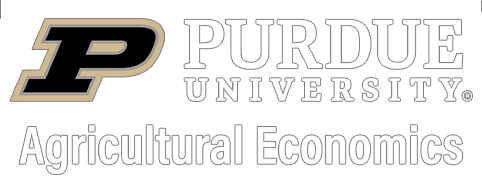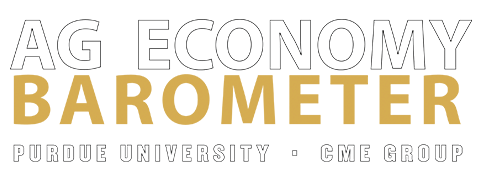Search our entire resource library
You're viewing a specific archive. Looking for something and want to search by keyword or just take a general look at ALL our resources? Click Search below!
soybeans
Host Brady Brewer provides a recap of Dr. Chad Hart’s presentation on the 2024 agricultural crop market outlook at the Purdue Top Farmer Conference on the latest episode of the Purdue Commercial AgCast. Dr. Hart, a professor and crop marketing specialist at Iowa State University, explores the shift to “normalcy” for crop prices and farm incomes in 2024.
Read MoreThe Purdue Crop Cost and Return Guide offers farmers a resource to project financials for the coming cropping year. These are the March 2024 crop budget estimations for 2024.
Read MoreAs the calendar turns to November, many farmers in the eastern Corn Belt still have corn left to harvest. According to USDA, 68% of corn in Indiana has been harvested as of November 5th. Wet corn in the primary culprit. As a result, many elevators are full and are at drying capacity.
Read MoreAs harvest heats up across the Midwest corn and soybean basis have been weakening. Weakening basis during harvest is typical of seasonal basis patterns. Therefore, to give context to current basis levels it is helpful to compare them to historical basis levels.
Read MoreDry and hot conditions this year are again contributing to lower than normal river levels and, as a result, increasing barge rates. This is certainly something producers will want to pay attention to this fall.
Read MoreComparing crop yields, gross revenue, total expense, and net returns for conventional and organic alfalfa, corn, oats, soybeans, and winter wheat using FINBIN data.
Read MoreThis article identified the optimal portfolio of corn and soybean marketing strategies for a case farm in southeast Indiana. The hedge and roll strategy had the highest net return per acre, and the lowest level of downside risk of any of the individual marketing strategies. However, downside risk can be reduced by diversifying marketing strategies. In particular, combining the hedge and roll strategy with the marketing year cash price strategy was effective in reducing downside risk and resulted in only a slight decline in net return per acre.
Read MoreWhile there have been numerous studies or articles that have evaluated grain marketing and crop insurance strategies separately, there is limited previous literature that examines these tools simultaneously. The purpose of this article is to identify which strategies contribute to an optimal portfolio of soybean marketing strategies for a case farm in southeast Indiana using a downside risk model.
Read MoreSoybean futures volatility increased sharply this week as futures prices responded to concerns about dry weather possibly impacting crop yields. Purdue ag economists James Mintert and Nathanael Thompson discussed the updated soybean outlook on the latest Purdue Commercial AgCast video podcast.
Read MoreApril 13, 2023 crop basis update on forward contract bids, corn and soybean basis outlook, and new crop corn and soybean futures.
Read More


